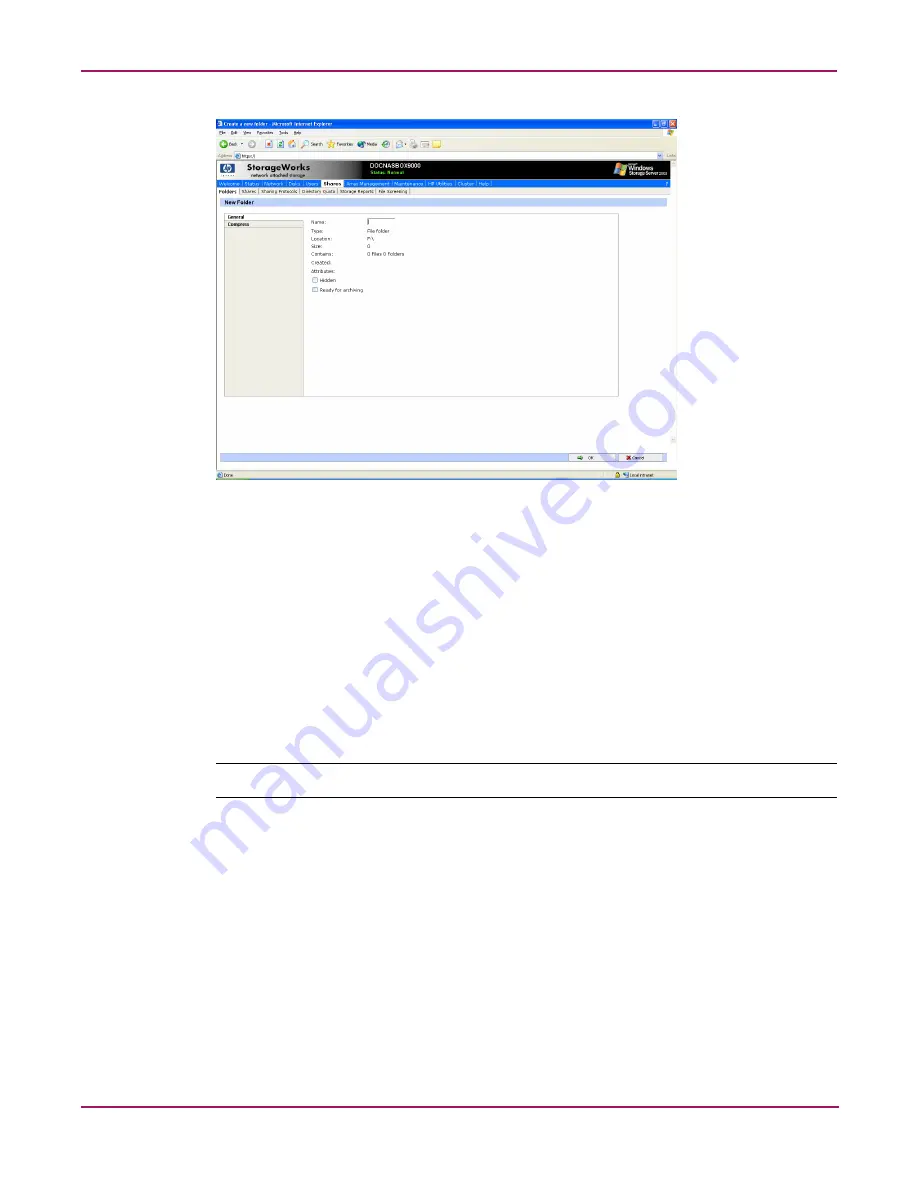
Folder, Printer, and Share Management
124
NAS 4000s and 9000s Administration Guide
Figure 66: Create a New Folder dialog box, General tab
3. In the Compress tab, indicate whether and how this folder and its contents are to be
compressed.
4. After all information for the new folder is entered, click OK.
Deleting a Folder
To delete a folder:
1. From the Shares directory, navigate to the folder to delete. Select the folder and then click
Delete. The Delete Folder dialog box is displayed.
Summary information about the deletion is displayed.
Note:
View the summary information to confirm that this is the intended share.
2. Verify that the displayed folder is the folder to delete and then click OK.
The folder and all of its subfolders are deleted and the main dialog box is displayed again.
Modifying Folder Properties
To modify folder properties:
1. From the Shares directory, navigate to the folder whose properties need to be edited. Then
click Properties. The Properties dialog box is displayed.
Summary of Contents for NAS 4000s
Page 18: ...About this Guide 18 NAS 4000s and 9000s Administration Guide ...
Page 92: ...Disk Management 92 NAS 4000s and 9000s Administration Guide ...
Page 196: ...NetWare File System Management 196 NAS 4000s and 9000s Administration Guide ...
Page 246: ...Index 246 NAS 4000s and 9000s Administration Guide ...






























